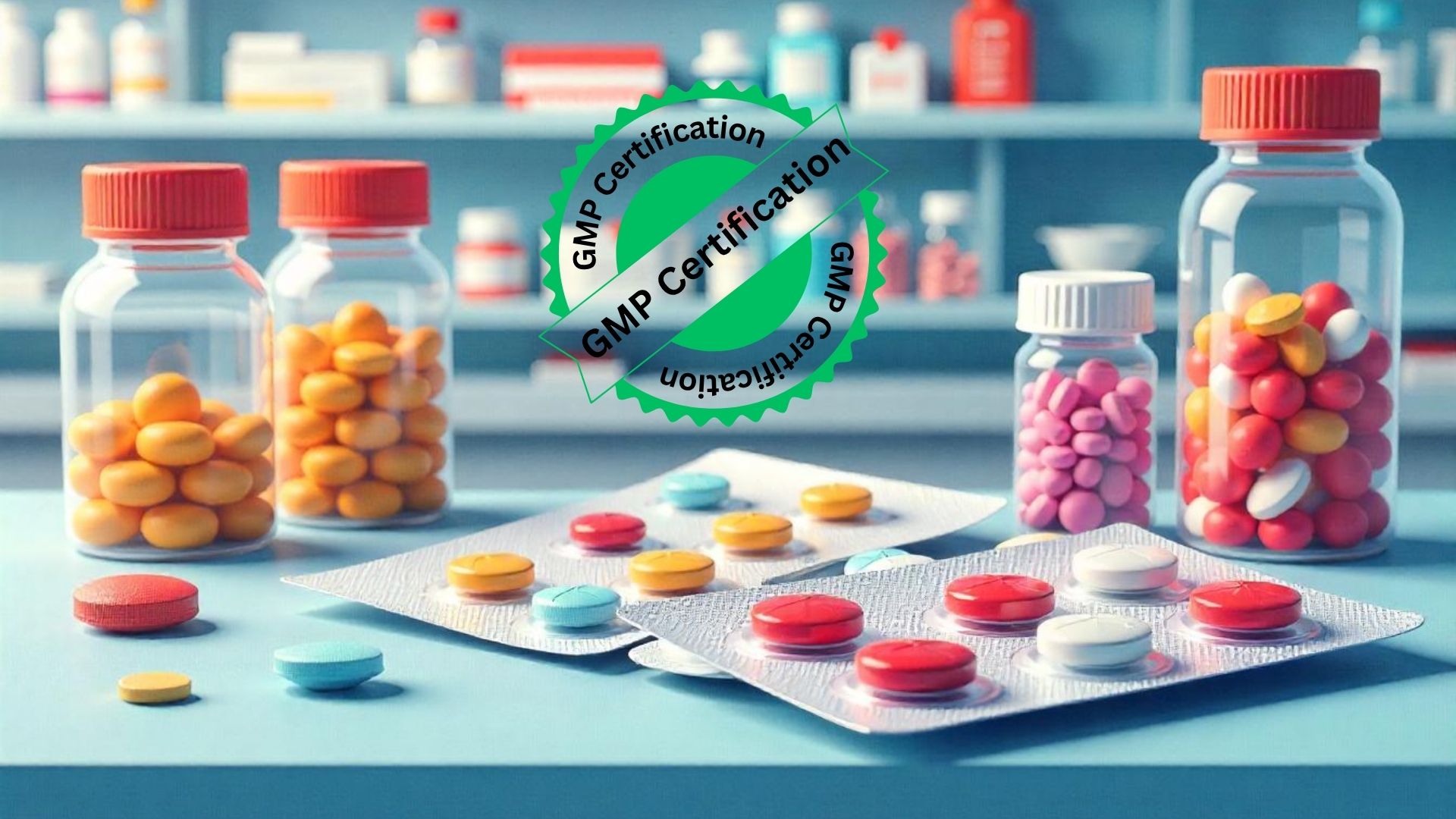GMP Certification for Pharmaceutical Manufacturers is Your License to Lead

Why GMP Certification Matters for Pharma Manufacturers (And How to Nail It)
Picture this: you’re running a pharmaceutical manufacturing plant, churning out life-saving drugs. Everything’s humming along—until an audit hits, and suddenly, your processes are under a microscope. One slip, and your reputation, market access, or even your entire operation could take a hit. That’s where Good Manufacturing Practice (GMP) certification comes in. It’s not just a badge; it’s your ticket to trust, compliance, and global markets. But why does it matter so much, and how do you get it right? Let’s break it down.
What’s GMP, Anyway?
GMP is the gold standard for ensuring your drugs are safe, effective, and consistent. It’s a set of guidelines—think of them as a playbook—laid out by regulators like the FDA, EMA, or WHO. These cover everything from how you store raw materials to how you train your staff. The goal? To make sure every pill, vial, or syringe that leaves your facility is up to scratch.
Here’s the thing: GMP isn’t optional. If you want to sell in major markets like the U.S. or Europe, you need to be GMP-certified. Without it, you’re locked out. And even if you’re selling locally, GMP builds trust with customers and regulators. Who wouldn’t want that peace of mind?
- Quality assurance: GMP ensures your products meet strict standards, batch after batch.
- Risk reduction: It minimizes errors that could lead to recalls or, worse, patient harm.
- Market access: Certification opens doors to international markets with stringent standards.
But let’s be real—getting certified isn’t a walk in the park. It takes time, money, and a lot of effort. So, why bother?
The Stakes Are Higher Than You Think
Imagine a batch of contaminated drugs hitting the market. The fallout—lawsuits, recalls, damaged trust—could cripple your business. GMP certification isn’t just about checking boxes; it’s about protecting patients and your bottom line. A single mistake can cost a fortune. Just look at the valsartan recall: contaminated batches led to global shortages and eroded public trust in the supply chain.
And here’s a kicker: GMP certification isn’t static. Regulators keep raising the bar. If you’re not keeping up, you’re falling behind. Plus, with the rise of biologics and personalized medicines, GMP requirements are getting more complex. Staying certified keeps you ahead of the curve.
But there’s a flip side. GMP certification can feel like a bureaucratic maze. The paperwork, the audits, the constant vigilance—it’s exhausting. Yet, the benefits outweigh the hassle. You know what? It’s Like Training for a Marathon—Grueling but Rewarding
Think of GMP certification as a marathon, not a sprint. You’re not just aiming to pass one audit; you’re building a culture of quality is everything in your organization. That means getting everyone on board—from the top brass to the folks on the factory floor. It starts with a mindset: quality isn’t something you bolt on; it’s woven into every step of your process.
Here’s how you can make it manageable:
- Start with a Gap Analysis: Take a hard look at your current processes. Where are the weak spots? Maybe your documentation’s a mess, or your cleanroom’s not up to snuff. Pinpoint these gaps early to avoid any surprises during inspections.
- Train, Train, Train: Your team is only as good as its weakest link. Regular training keeps everyone sharp—whether it’s proper gowning techniques or handling deviations. Pro tip: make training engaging, not just a check-box exercise. Maybe throw in some real-world scenarios to keep it real.
- Invest in Systems: Manual processes are a recipe for errors. Look at Quality Management Software—like MasterControl or Veeva—that streamline documentation, CAPA tracking, and more. It’s an upfront cost, but it saves you from headaches later.
- Mock Audits: Practice makes perfect. Run internal audits to simulate the real inspections. It’s like a fire drill—you’ll spot weaknesses before they become a problem.
Don’t Go It Alone
Here’s a little confession: when I first learned about GMP, I thought it was all about having the perfect setup and sailing through audits. Boy, was I wrong. GMP’s a team effort, and you don’t have to figure it all out solo. Consultants can be your best friends here—they bring expertise and an outside perspective.
And don’t sleep on industry networks. Groups like the International Society for Pharmaceutical Engineering (ISPE) offer resources, webinars, and events where you can swap war stories with other manufacturers. It’s like having a support group for surviving GMP certification—and who doesn’t need that?
The Emotional Side of GMP Certification
Let’s get real for a moment. GMP certification isn’t just about processes; it’s about the people behind them. Your team’s morale matters. Constant audits can feel like you’re under a microscope, and nobody likes that. But when you frame GMP Certification as a shared mission—to make drugs that save lives—it changes the narrative. Suddenly, it’s not just a job; it’s a purpose.
I’ve seen plants where workers take pride in their GMP compliance. They’re not just clocking in; they’re part of something bigger. That’s the kind of culture that not only gets you through audits but also attracts top talent. And let’s be honest—there’s nothing like the relief of passing a big audit with flying colors. It’s like acing a test you’ve been cramming for for months.
What’s Around the Corner?
GMP’s not going anywhere. With new technologies like AI, IoT, and blockchain creeping into the pharma, the expectations around GMP are shifting. Imagine real-time monitoring of your cleanroom’s particle count or blockchain tracking every raw material’s journey. These aren’t sci-fi fantasies—they’re already happening.
Keeping up means staying curious. Read up on industry trends, attend conferences, or even follow thought leaders on platforms like LinkedIn. The more you know, the better you’ll adapt. Plus, with global supply chains under scrutiny, GMP certification signals to partners that you’re a reliable player. In a world where trust is hard to come by, that’s gold.
Wrapping It Up (But Not Really)
GMP certification isn’t just a hoop to jump through—it’s a commitment to quality, safety, and trust. Sure, the process can feel like herding cats sometimes, but the payoff is worth it. You’re not just protecting patients; you’re building a business that can compete on the global stage. So, take a deep breath, rally your team, and start tackling those gaps. You’ve got this.
What’s your next step? Maybe it’s a gap analysis or a chat with a consultant. Whatever it is, don’t wait. The sooner you start, the sooner you’ll be holding that GMP certificate with pride. And trust me—there’s no better feeling than knowing you’re doing right by your patients and your business.




